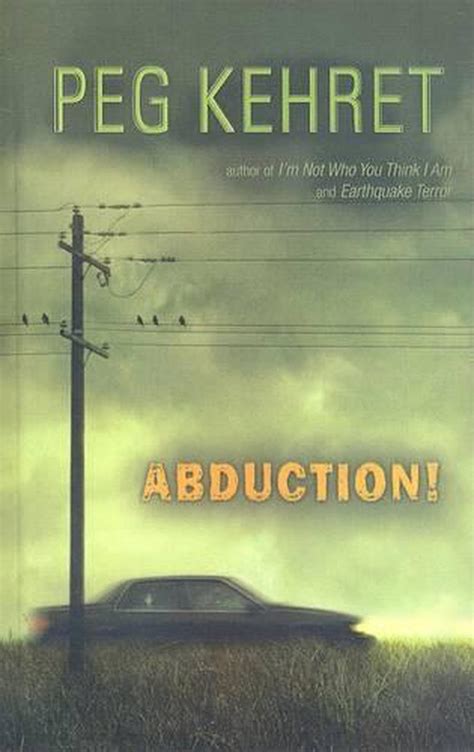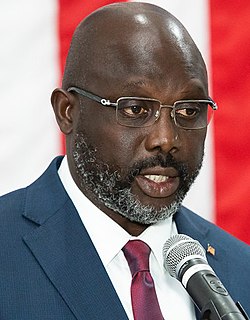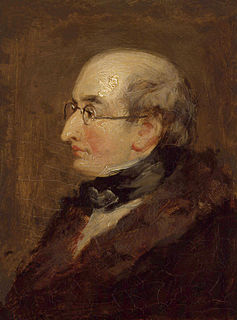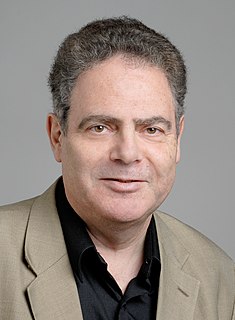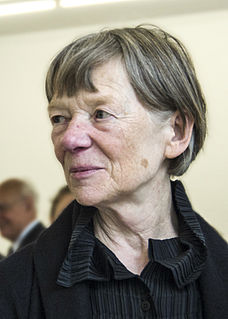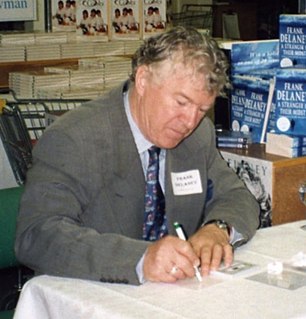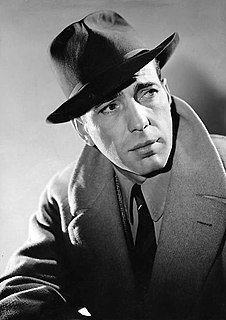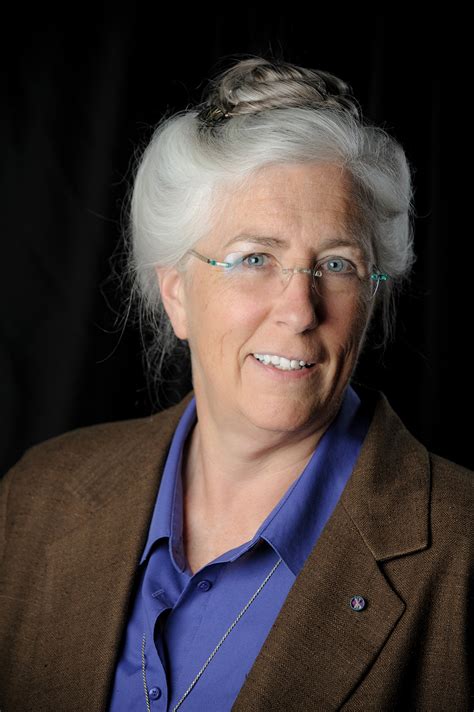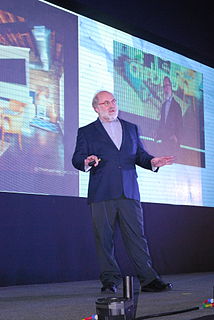Top 719 Libraries And Librarians Quotes & Sayings - Page 12
Explore popular Libraries And Librarians quotes.
Last updated on April 17, 2025.
[On libraries] What's great about them is that anybody can go into them and find a book and borrow it free of charge and read it. They don't have to steal it from a bookshop... You know when you're young, you're growing up, they're almost sexually exciting places because books are powerhouses of knowledge, and therefore they're kind of slightly dark and dangerous. You see books that kind of make you go 'Oh!'
There will be natural propriety in using an eastern light for bedrooms and libraries, a western light in winter for baths and winter apartments, and a northern light for picture galleries and other places in which a steady light is needed; for that quarter of the sky grows neither light nor dark with the course of the sun, but remains steady and unshifting all day long.
Negro writers, just by being black, have been on the blacklist all our lives. Do you know that there are libraries in our country that will not stock a book by a Negro writer, not even as a gift? There are towns where Negro newspapers and magazines cannot be sold except surreptitiously. There are American magazines that have never published anything by Negroes. There are film studios that have never hired a Negro writer. Censorship for us begins at the color line.
I could not write my books without the library's help. Even with the ease of Internet research, I find books to be indispensable when I am writing. ... Books make me laugh, cry, and think. They give me insight into history, and into the lives of people in other cultures. They help me make important decisions, and they provide endless entertainment. Hooray for libraries!
The Web is cool, but the library is magic. Where else can the spirit of generations of writers stir your soul? So many writers talk about libraries setting them on their magical paths, it's almost a groaner. But we know it's true. Wander through the stacks and you can feel the dreams, the unique worlds bubbling within each volume. The magic enters you as if by osmosis. On the Web, you may feel clever, lucky and driven to download--but rarely inspired to dream and to write.
We can imagine the books we'd like to read, even if they have not yet been written, and we can imagine libraries full of books we would like to possess, even if they are well beyond our reacher, because we enjoy dreaming up a library that reflects every one of our interests and every one of our foibles--a library that, in its variety and complexity, fully reflects the reader we are.
Out of the closets and into the museums, libraries, architectural monuments, concert halls, bookstores, recording studios and film studios of the world. Everything belongs to the inspired and dedicated thief…. Words, colors, light, sounds, stone, wood, bronze belong to the living artist. They belong to anyone who can use them. Loot the Louvre! A bas l’originalité, the sterile and assertive ego that imprisons us as it creates. Vive le vol-pure, shameless, total. We are not responsible. Steal anything in sight.
Zalasiewicz is convinced that even a moderately competent stratigrapher will, at the distance of a hundred million years or so, be able to tell that something extraordinary happened at the moment in time that counts for us as today. This is the case even though a hundred million years from now, all that we consider to be the great works of man—the sculptures and the libraries, the monuments and the museums, the cities and the factories—will be compressed into a layer of sediment not much thicker than a cigarette paper.
I grew up in a utopia, I did. California when I was a child was a child's paradise, I was healthy, well fed, well clothed, well housed. I went to school and there were libraries with all the world in them and after school I played in orange groves and in Little League and in the band and down at the beach and every day was an adventure. . . . I grew up in utopia.
When I use a name or place, I want to leave the reader open to the waterfall of determinacy that it may provoke. And I don't know, but I must mention the name Borges. I try to mention it in every one of my works. It's a mark, a stamp, a sort of homage to Argentinidad. But it's an homage that works through pat phrases, those stock images that populate his work: the night, labyrinths, libraries. That is, I don't want simply to pay homage to Borges, but rather the contrary: to recall his commonplaces.
I think that it's not enough to do the little Band-Aid things of having celebrities come and read to children. Not that we don't need to read to children, but we don't need to just do it one time and feel good about it. I think we need to think long range about poor people and their relationship to libraries.
Before the birth of the New Woman the country was not an intellectual desert, as she is apt to suppose. There were teachers of thehighest grade, and libraries, and countless circles in our towns and villages of scholarly, leisurely folk, who loved books, and music, and Nature, and lived much apart with them. The mad craze for money, which clutches at our souls to-day as la grippe does at our bodies, was hardly known then.
Many flagship state universities have wonderful digital libraries that are accessed by people around the world. In future, if not current, budget crises, trustees, board members, and administrators may wonder why these state institutions - with an articulated primary clientele of students, faculty, and staff members and a secondary clientele of all citizens of the state - should be spending resources on a digital library that is used by many people beyond the primary and secondary service populations.
I read," I say. "I study and read. I bet I've read everything you read. Don't think I haven't. I consume libraries. I wear out spines and ROM-drives. I do things like get in a taxi and say, "The library, and step on it." My instincts concerning syntax and mechanics are better than your own, I can tell, with all due respect. But it transcends the mechanics. I'm not a machine. I feel and believe. I have opinions. Some of them are interesting. I could, if you'd let me, talk and talk.
Alliances are crucial to success in the political sphere. However, if we are to approach other organizations to propose alliances for the public good, we must be prepared to assert a far more important role for the library. We must clearly define what we do and establish and assert the relationship of libraries to basic democratic freedoms, to the fundamental humanistic principles that are central to our very way of life. . . .
When something is discovered by people in movie theaters, it's discovered by people who are all together, and there's a sort of feeling of an event about it. And when it's on video, it's like something is being discovered in the library or something. It's like having a second life in public libraries. It's just like individuals, and it's less of a... We can't participate in it the same way.
The three of them set out every morning on adventures of their own kind. Once, an elderly professor of literature, Mrs. Taggart's friend, saw them on top of a pile in a junk yard, dismantling the carcass of an automobile. He stopped, shook his head and said to Francisco, 'A young man of your position ought to spend his time in libraries, absorbing the culture of the world.' 'What do you think I'm doing?' asked Francisco.
The books of the great scientists are gathering dust on the shelves of learned libraries. And rightly so. The scientist addresses an infinitesimal audience of fellow composers. His message is not devoid of universality but its universality is disembodied and anonymous. While the artist's communication is linked forever with its original form, that of the scientist is modified, amplified, fused with the ideas and results of others and melts into the stream of knowledge and ideas which forms our culture. The scientist has in common with the artist only this: that he can find no better retreat from the world than his work and also no stronger link with the world than his work.
Growing up, my parents managed to show me the importance of reading without cramming it down my throat. A difficult task, I'm sure. It breaks my heart to think that there are kids out there, ready to have their imaginations lit on fire, excited and wanting to read, and facing naked shelves in their school or local libraries. Rather than complain or wait till the system stops failing our nation's children this is a matter I feel we must take into our own hands. There are children, right now, waiting-wanting to read. What shall we tell them>
I find it weird that people who claim to speak for the prisoners basically want to keep them in cages all the time - and then they'll fight for better prison libraries or whatever. It's like they're missing the big picture. If I were in prison, of course I would prefer to be outside doing physical labour. It's not physical labour but prison life that kills a person. It's so bad inside that the outside jobs are often sought after. So, yeah, call them work crews and let them do it. At the same time the retributive side can feel the cons are being punished.
There is only one way to read, which is to browse in libraries and bookshops, picking up books that attract you, reading only those, dropping them when they bore you, skipping the parts that drag-and never, never reading anything because you feel you ought, or because it is part of a trend or a movement. Remember that the book which bores you when you are twenty or thirty will open doors for you when you are forty or fifty-and vise versa. Don’t read a book out of its right time for you.
She was brilliant and joyous and she believed- probably correctly- that libraries contain the answers to all things, to everything, and that if you can't find the information you seek in the library, then such information probably doesn't exist in this or any parallel universe now or ever to be known. She was thoughtful and kind and she always believed the best of everybody. She was, above all else, a master librarian and she knew where to find any book on any subject in the shortest possible time. And she was wonderfully unhinged.
We honor ambition, we reward greed, we celebrate materialism, we worship acquisitiveness, we commercialize art, we cherish success and then we bark at the young about the gentle arts of the spirit. The kids know that if we really valued learning, we would pay our teachers what we pay our lawyers and stockbrokers. If we valued art, we would not measure it by its capacity to produce profits. If we regarded literature as important, we would remove it from the celebrity sweepstakes and spend a little money on our libraries.
Paris, hours in the café, a certain spirit of rebellion, one side a bit too stubborn, the sea, the true, in Bretagne, the walking in Provence, the taste, the passion for literature, the libraries, the beautiful editions, remaking the world in a set of hours around a table and a bottle of wine. Talking without really saying nothing, just for the pleasure of talking. The museums, the theatres, the elegance, the delicacy, the heritage of the Illustration, a humanistic philosophy. The balance we got between a nordic rigor and a latin savoir-vivre, the insolence and the freedom.
Further, in writing, I feel corrupt and unethical if I have to look up a subject in a library as part of the writing itself. This acts as a filter--it is the only filter. If the subject is not interesting enough for me to look it up independently, for my own curiosity or purposes, and I have not done so before, then I should not be writing about it at all, period. It does not mean that libraries (physical and virtual) are not acceptable; it means that they should not be the source of any idea.
This is an age of intellectual sauces, of essence, of distillation. We have conclusions without deductions, abridgments of history and abridgments of science without leading facts. We have animals for literature, Cabinet Encyclopaedias, Family Libraries, Diffusion Societies, and heaven knows what else! What is all this for? Not to add knowledge to the learned, but to tell points to the ignorant, without giving them the trouble to acquire the links. Oh! it is sad work. And the result will be injurious to all classes.
Access to knowledge is the superb, the supreme act of truly great civilizations. Of all the institutions that purport to do this, free libraries stand virtually alone in accomplishing this mission. No committee decides who may enter, no crisis of body or spirit must accompany the entrant. No tuition is charged, no oath sworn, no visa demanded. Of the monuments humans build for themselves, very few say - touch me, use me, my hush is not indifference, my space is not barrier. If I inspire awe, it is because I am in awe of you and the possibilities that dwell in you.
Careful as they may be, developers of Eiffel libraries will always run into cases in which, after releasing a library class, they suddenly experience what in French is called esprit de l'escalier or wit of the staircase: a great thought which unfortunately is an afterthought, like a clever reply that would have stunned all the other dinner guests - if only you had thought of it before walking down the stairs after the party is over.
An indigenous culture with sufficient territory, and bilingual and intercultural education, is in a better position to maintain and cultivate its mythology and shamanism. Conversely, the confiscation of their lands and imposition of foreign education, which turns their young people into amnesiacs, threatens the survival not only of these people, but of an entire way of knowing. It is as if one were burning down the oldest universities in the world and their libraries, one after another — thereby sacrificing the knowledge of the world's future generations.
I have all my tricks to unplugging. Sometimes I just close my eyes and I breathe a couple of times, even if I'm in the middle of a conversation. It centers me. Dancing also helps me to unplug, so does writing music. I really enjoy going to Central Park and Upstate New York, when I really want to unplug from the city. Going to the library is great, too. There's just a nice equality about libraries, there's everyone from kids to senior citizens to students, it's a nice environment. I grab whatever book I feel attracted to and then I just sit there and read it for a little while.
To exact of every man who writes that he should say something new, would be to reduce authors to a small number; to oblige the most fertile genius to say only what is new, would be to contract his volumes to a few pages. Yet, surely, there ought to be some bounds to repetition; libraries ought no more to be heaped for ever with the same thoughts differently expressed, than with the same books differently decorated.
But perhaps more important, as someone wishing to make a comment or two about contemporary life and values, I don't have to dig through libraries or travel to exotic lands to arrive at a view of our modern situation refracted through the lens of the preindustrial world, or the uncommercialized, unfranchised, perhaps unsanitized-and therefore supposedly more "authentic"-perspective ofthe Third World. Very simply, this is because that "other" world, as alien as if separated by centuries in time, is the one from which I came
Yes, yes, I see it all! — an enormous social activity, a mighty civilization, a profuseness of science, of art, of industry, of morality, and afterwords, when we have filled the world with industrial marvels, with great factories, with roads, museums and libraries, we shall fall exhausted at the foot of it all, and it will subsist — for whom? Was man made for science or was science made for man?
For the mind and the imagination, bookstores aren't enough, college courses aren't enough, the Internet isn't enough. Those resources are all governed by the tastes and needs of the moment. Only libraries take the long view, quietly shelving the unused with the used, knowing that one of these days the two categories will be reversed by a student's discovery of those hitherto undisturbed volumes whose contents will unsettle the learned world.
We all know of the dangers and inequities of the traditional digital divide: People who have good access tocomputer networks have a distinct advantage - in terms of both life opportunities and quality of life, I wouldargue - over the vast majority of the world's population that does not yet have good access to computernetworks. The "other" digital divide points to an increasingly unstable situation that has developed inlibrarianship as digital libraries have evolved and matured.
I photograph in public and semi-public spaces that date from various epochs. These are spaces accessible to everyone. They are places where you can meet and communicate, where you can share or receive knowledge, where you can relax and recover. They are spas, hotels, waiting rooms, museums, libraries, universities, banks, churches and, as of a few years ago, zoos. All of the places have a purpose, as for the most part do the things within them.
The vanity extended most of all to his library, arguably the real love of Cicero's life. It is difficult to name anything in which he took more pleasure, aside possibly evasion of the sumptuary laws. Cicero liked to believe himself wealthy. He prided himself on his books. He needed no further reason to dislike Cleopatra: intelligent women who had better libraries than he did offended him on three counts.
Authors and publishers want fair compensation and a means of protecting content through digital rights management. Vendors and technology companies want new markets for e-book reading devices and other hardware. End-users most of all want a wide range and generous amount of high-quality content for free or at reasonable costs. Like end-users, libraries want quality, quantity, economy, and variety as well as flexible business models.
Imagine the people who believe such things and who are not ashamed to ignore, totally, all the patient findings of thinking minds through all the centuries since the Bible was written. And it is these ignorant people, the most uneducated, the most unimaginative, the most unthinking among us, who would make themselves the guides and leaders of us all; who would force their feeble and childish beliefs on us; who would invade our schools and libraries and homes. I personally resent it bitterly.
Record stores are the hippest libraries. In these tired ole days of homogenized entertainment, where so much of the art of our society is culminated, dumbed-down and mass produced, there is a shining jewel in the rise of the indy record stores. Going to a record shop for me is like a little treasure hunt no one can take you on but yourself. It's fun to look around and see the other shoppers too...totally entrenched in their own adventure, anticipating the reward of heart wrenching, soul filling, joy making music that might just be a bin or a flip away.
And let's not forget that internally, we are, like all dying empires, being hollowed out from the inside in terms of infrastructure. I live near Philly, I live in Princeton. The school system is shattered with closings and layoffs. Libraries are being shuttered. Head Start is being cut back. Unemployment benefits are not being extended. You know, we've reached a point of both physical and emotional exhaustion.
The city as a center where, any day in any year, there may be a fresh encounter with a new talent, a keen mind or a gifted specialist-this is essential to the life of a country. To play this role in our lives a city must have a soul-a university, a great art or music school, a cathedral or a great mosque or temple, a great laboratory or scientific center, as well as the libraries and museums and galleries that bring past and present together. A city must be a place where groups of women and men are seeking and developing the highest things they know.
Once the government can demand of a publisher the names of the purchasers of his publication, the free press as we know it disappears. Then the spectre of a government agent will look over the shoulder of everyone who reads. ... Fear of criticism goes with every person into the bookstall. The subtle, imponderable pressures of the orthodox lay hold. Some will fear to read what is unpopular, what the powers-that-be dislike. ... fear will take the place of freedom in the libraries, book stores, and homes in the land.
All that is good in our history is gathered in libraries. At this moment, Plato is down there at the library waiting for us. So is Aristotle. Spinoza is there and so is Kats. Shelly and Byron adn Sam Johnson are there waiting to tell us their magnificent stories. All you have to do is walk in the library door and the great company open their arms to you. They are so happy to see you that they come out with you into the street and to your home. And they do what hardly any friend will-- they are silent when you wish to think.
How can we accept a situation in which there are no longer orchestras, choruses, libraries or art classes to nourish our children? We need more support for the arts, not less -- particularly to make this rich world available to young people whose vision is choked by a stark reality. How many children, who have no other outlet in their lives for their grief, have found solace in an instrument to play or a canvas to paint on? When you take into consideration the development of the human heart, soul and imagination, don't the arts take on just as much importance as math or science?
It has always been my experience that, whatever groupings I choose for my books, the space in which I plan to lodge them necessarily reshapes my choice and, more important, in no time proves too small for them and forces me to change my arrangement. In a library, no empty shelf remains empty for long. Like Nature, libraries abhor a vacuum, and the problem of space is inherent in the very nature of any collection of books.
The words are strung together, with their own special grammar-the laws of quantum theory-to form sentences, which are molecules. Soon we have books, entire libraries, made out of molecular "sentences." The universe is like a library in which the words are atoms. Just look at what has been written with these hundred words! Our own bodies are books in that library, specified by the organization of molecules-but the universe and literature are organizations of identical, interchangeable objects; they are information systems.
He is no true reader who has not experienced the reproachful fascination of the great shelves of unread books, of the libraries at night of which Borges is the fabulist. He is no reader who has not heard, in his inward ear, the call of the hundreds of thousands, of the millions of volumes which stand in the stacks of the British Library asking to be read. For there is in each book a gamble against oblivion, a wager against silence, which can be won only when the book is opened again (but in contrast to man, the book can wait centuries for the hazard of resurrection.)
Making money isn't the main point of business. Money is a by-product.... A new product has been found, something of use to the world. A new industry moves into an undeveloped area. Factories go up, machines go in and you're in business. It's coincidental that people who've never seen a dime now have a dollar and barefooted kids wear shoes and have their faces washed. What's wrong with an urge that gives people libraries, hospitals, baseball diamonds and movies on a Saturday night?
I am a librarian. I discovered me in the library. I went to find me in the library. Before I fell in love with libraries, I was just a six-year-old boy. The library fueled all of my curiosities, from dinosaurs to ancient Egypt. When I graduated from high school in 1938, I began going to the library three nights a week. I did this every week for almost ten years and finally, in 1947, around the time I got married, I figured I was done. So I graduated from the library when I was twenty-seven. I discovered that the library is the real school.
Now, I'm as appreciative as the next obsessive-compulsive recovering-academic of the vast riches of material becoming available online, thanks to all those Google scanners crouched in the basements of libraries around the world, madly feeding books through their machines. I download obscure tomes onto my iPad and give thanks to the dual gods Gates and Jobs, singing hymns to all the lesser pantheon of geniuses. But there's nothing like a book.
One time, the Library of Congress was giving books to local libraries around the country on Islam. The library of a guy named Walter Jones, who's a member of Congress from North Carolina, got some books and resource materials, and he got up in the press and said he didn't want any Muslim books in the library. And the people said, "Wait a minute, that's kind of anti-Muslim." He said, "Oh no, Keith Ellison is a friend of mine." And I said, "You know what? We are friends, but you're wrong about this.
You must not count much upon what I can do or learn in New York.... Everything there disappoints me but the crowd; rather, I was disappointed with the rest before I came. I have no eyes for their churches, and what else they find to brag of. Though I know but little about Boston, yet what attracts me, in a quiet way, seems much meaner and more pretending than there,--libraries, pictures, and faces in the street. You don't know where any respectability inhabits.
What libraries give you is all three tenses - the past tense - the present tense in which we live and the future that we can only imagine. These places have teachers who are living and dead and we are lucky to have them. If I sit here and read Aristotle, he is speaking to me across a thousand years - more than a thousand years. That sense that I am in the company of the great greatest people who ever lived is a humbling experience but a liberating experience.
The motto I have penned on my knuckles is that this is the best world we have--because it's the only world we have. It's the simplest math ever. However many terrible, rankling, peeve-inducing things may occur, there are always libraries. And rain-falling-on-sea. And the moon. And love. There is always something to look back on, with satisfaction, or forward to, with joy. There is always a moment where you boggle at the world--at yourself--at the whole, unlikely, precarious business of being alive--and then start laughing



